2 May 2025 | Afghanistan, Africa, Americas, Asia and Pacific, Belarus, Europe and Central Asia, India, News and features, Somalia, Turkey, Uganda, United States
Tomorrow marks World Press Freedom Day, a day started in 1993 to remind governments of their duty to protect freedom of the press. This year, the need for this reminder feels more urgent than ever.
In the USA, President Donald Trump has been in office for just over 100 days and already we’ve witnessed attempts to attack independent media and dismantle press freedom. Since the beginning of his second term in office, Index has reported on Trump’s war on truth, on the devastating implications on journalism his cuts to the US Agency for Global Media (USAGM) entities including Voice of America and Radio Free Europe/Radio Liberty (RFE/RL) will have, and how he’s worked to remove critical media from the White House.
Within this context, on World Press Freedom Day, Index has called upon its contributors from around the world, working in countries where they fight for press freedom every day, to reflect on what it means to them and why it is so important we defend it.
SOMALIA
Hinda Abdi Mohamoud, chief editor at Bilan Media
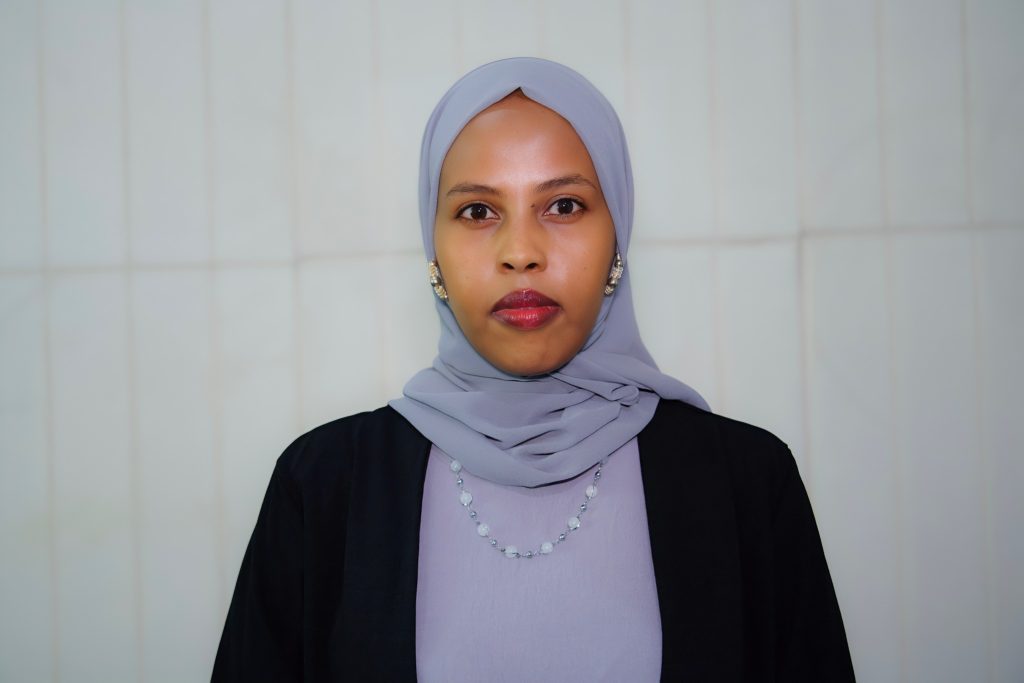
“As a journalist and the chief editor of Bilan Media, the only all-women newsroom in Somalia, I know that press freedom isn’t just important – it’s essential to our survival and our work. In a place where speaking the truth can be dangerous, where women’s voices have long been silenced or sidelined, press freedom is the tool that allows us to challenge injustice, elevate unheard stories, and advocate for real change.
That’s why organisations like Index on Censorship are so vital. They support journalists who risk their safety to ensure the truth is told. They defend journalists’ right to report and protect the public’s right to know.”
TURKEY
Nedim Türfent, journalist
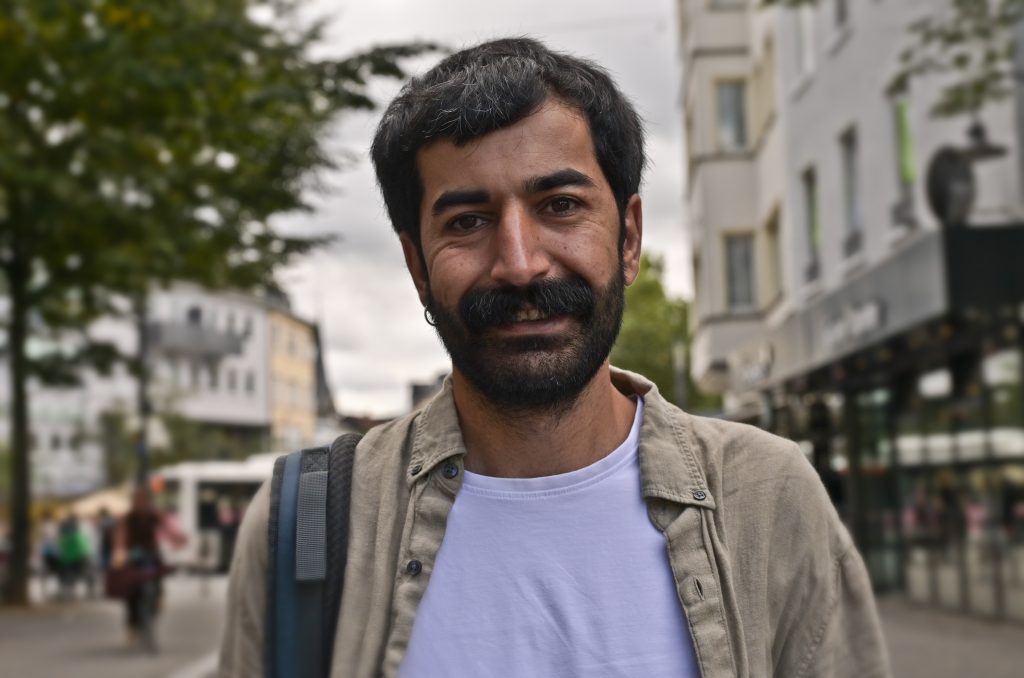
“Freedom of the press is, above all, the first bastion we must defend for the sake of all our other rights and freedoms. Ultimately, in a time and place where the press is not free, it becomes impossible to make our demands for rights visible, known, and heard. If we do not want our rights and freedoms to be dismantled piece by piece, we must be unwavering defenders of press freedom.
The fight for press freedom by international organisations is essential to ensure that the voices of journalists and media outlets facing oppression and persecution anywhere in the world are heard. This cross-border struggle also serves to prevent enemies of press freedom from casually and effortlessly exerting pressure on journalists – as if it were something ordinary. The louder and stronger the voice of international institutions, the more hesitation those enemies will have before violating the rights of journalists.
However, the heavy burden of this struggle should not rest solely on the shoulders of journalists and media organisations. We must remember: when the rights of even a single journalist are violated, the right of thousands of people to access information is also restricted. Shortly, in a world where press and freedom of expression are increasingly eroded, none of our rights or freedoms can be truly guaranteed. It’s that simple.”
AFGHANISTAN
Spozhmai Maani, journalist
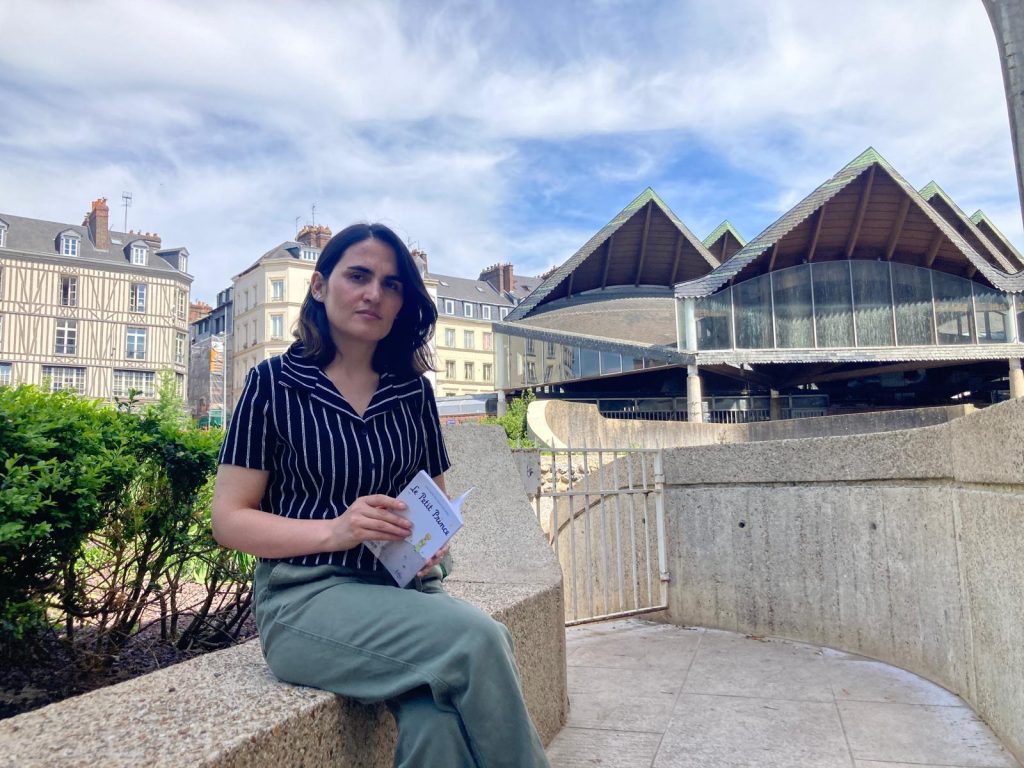
“For me, press freedom is not just a principle, it is a lifeline for truth and justice, especially in places like Afghanistan where silence is often enforced with fear. As a journalist who fled persecution for simply telling the truth, I know firsthand how critical it is to protect the voices that hold power to account. Organisations like Index on Censorship are essential in this fight. They give strength, visibility, and protection to those of us who risk everything to speak out. In a world where even established democracies are seeing press freedom eroded, their work is more urgent than ever.”
INDIA
Salil Tripathi, contributing editor at Index on Censorship
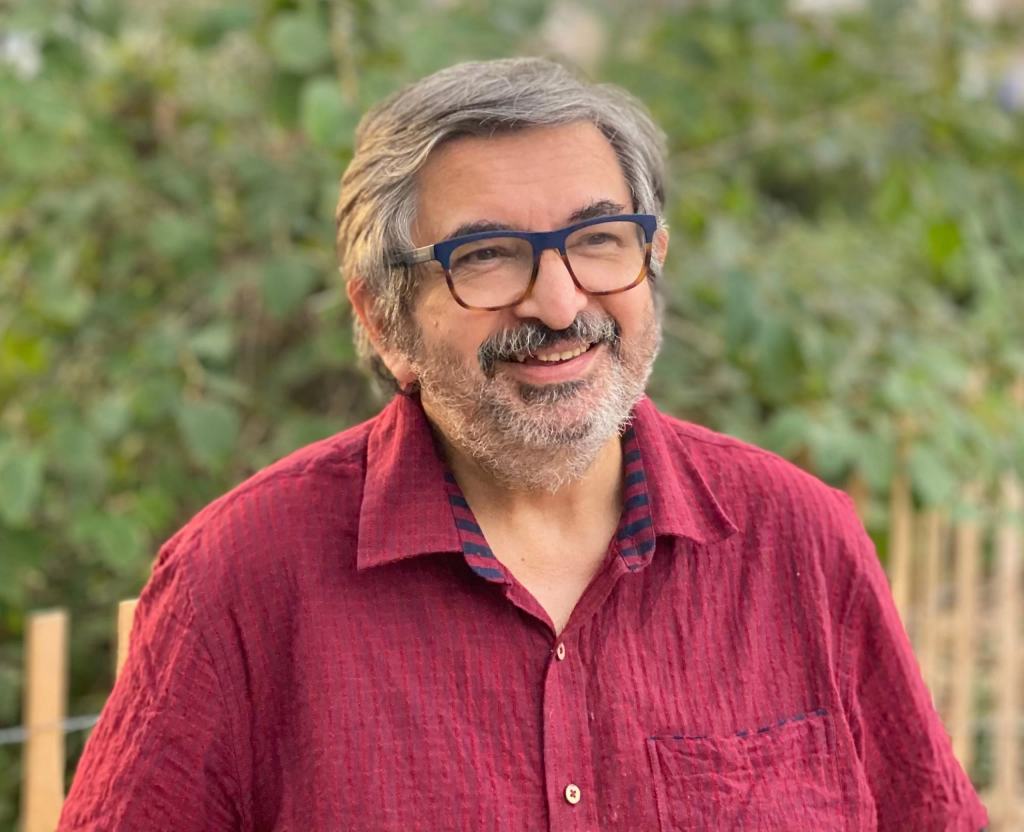
“We only have to look at closed societies from our past and present to know what life is like without press freedom. That some leaders and many people continue to believe in controlling the press – through laws, oligarchs, governments, and intimidation – shows what they are afraid of, and it shows why publications like Index on Censorship continue to matter.”
UGANDA
Danson Kahyana, contributing editor at Index on Censorship
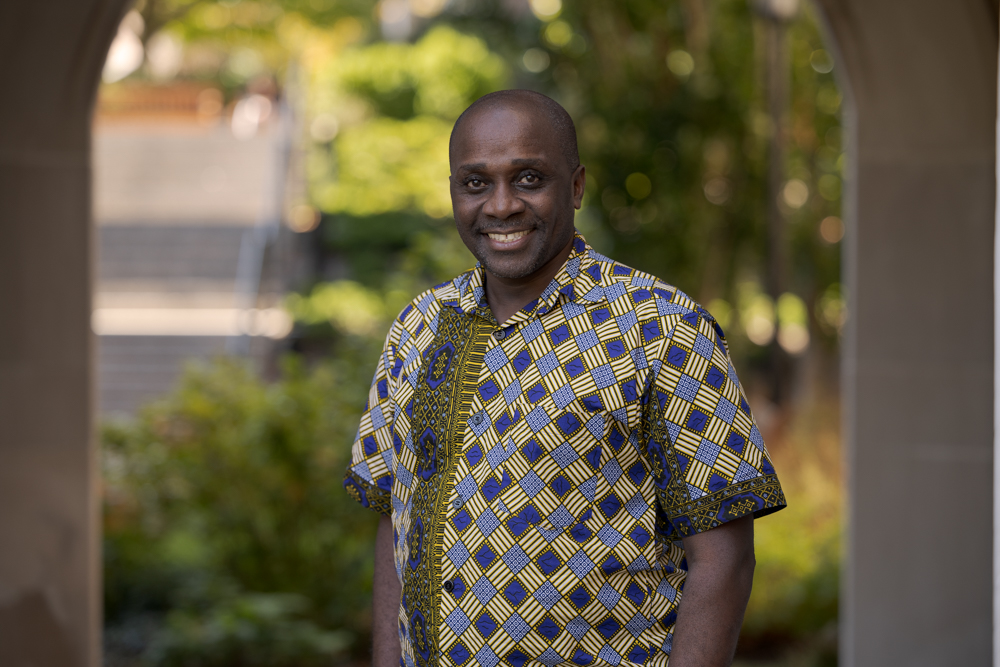
“Press freedom is the foundation of democracy – the press should be able to report on any matter of public importance without fear or favour. The moment press freedom is threatened, expect democracy to rot and die from within because nobody will be able to say, ‘Look – the emperor is naked!’ So nakedness (corruption, impunity, heavy-handedness, tyranny, etc.) will go unreported, thereby weakening institutions into comatose. In Uganda, we have seen this happen: The emperor called General Yoweri Museveni has gotten worse every year that passes. The more power he amasses by weakening institutions like the parliament and the judiciary the more naked he gets. It is because Ugandans have reported on his myriad abuses of power that the world has come to know that all along, he was a tyrant in democracy’s skin.
Because authoritarian regimes wield immense resources to punish critics as a means of stifling dissent, we need organisations like Index on Censorship to shine a light on tyrants’ assaults on freedom. Like witches and wizards, tyrants do their evil work in the safety of the dark. Index and other organisations like it remind the tyrants that someone is watching them, and that sooner than later, they will be held accountable for their misdeeds. In other words, Index and other organisations like it provide an archive of the tyrants’ atrocities that will be used against them in the courts of law. What is happening to former Philippines President Rodrigo Duterte is a good example – the reports against him caught up with him. Besides, by providing constant companionship and solidarity to journalists, Index and other organisations like it embolden the defenders of good governance and human rights in their castigation of impunity.”
BELARUS
Jana Paliashchuk, researcher

“While press freedom is a basic right in many countries, for millions of Belarusians it’s been denied for three decades under Aliaksandr Lukashenka’s dictatorship. Speaking out against repression often leads to prison – and journalists are hit hardest.
Today, 40 media workers are behind bars in Belarus for simply doing their jobs. Journalists like RFE/RL’s Ihar Losik and Belsat TV’s Katsiaryna Andreyeva. are serving harsh sentences and enduring torture behind bars. Other journalists were forced into exile, continuing their work from abroad, while Belarusians inside the country risk punishment just for reading independent news.
This may sound grim, but it’s the reality in Belarus, a European country. That’s why defending press freedom matters. It may seem like a solid foundation of society, but it’s as fragile as glass.”
25 Apr 2025 | Algeria, Americas, Canada, Europe and Central Asia, Hungary, Middle East and North Africa, News and features, United Kingdom, United States, Venezuela
In the age of online information, it can feel harder than ever to stay informed. As we get bombarded with news from all angles, important stories can easily pass us by. To help you cut through the noise, every Friday Index will publish a weekly news roundup of some of the key stories covering censorship and free expression from the past seven days. This week, we cover El Salvador’s plan for a prisoner swap and look at how Hungary has been placed on an EU watchlist.
Political prisoners: Bukele condemned by families of American deportees for Venezuela swap plan
Last week, the Donald Trump administration once again made headlines for wrongfully deporting Maryland resident Kilmar Ábrego García to a jail in El Salvador, and failing to facilitate his return. The president of El Salvador, Nayib Bukele, has become a prominent figure in this story, aligning himself with Trump and stating that he “does not have the power” to return Garcia to the USA – a claim that experts say is false.
Now, Bukele has proposed a deal to send 252 Venezuelans incarcerated in El Salvador (following deportation from the US) back to their home country, in exchange for Salvadoran “political prisoners” currently held in Venezuela. President Nicolas Maduro has stated that the Venezuelan nationals held in Salvadoran prisons were “kidnapped”, while Bukele has accused Maduro of imprisoning political opponents and activists.
These Venezuelans, many of whom are believed to have no criminal background and were deported on evidence as spurious as having tattoos, have now become pawns in a game of politics – which both their families and human rights groups alike have denounced. Nelson Suárez, whose brother is among those Venezuelans imprisoned in El Salvador, told The Guardian that he feels his brother is being treated “like political merchandise”.
Under surveillance: Hungary clashes with EU over use of facial recognition tech for LGBTQ+ Pride attendees
Last month, Hungary passed a law that banned LGBTQ+ pride marches in the country, with Hungarian Prime Minister Viktor Orbán stating that he “won’t let woke ideology endanger our kids.” This move sparked outrage, with opposition leaders lighting flares in parliament and demonstrators taking to the streets of Budapest. Now, one aspect of the law has drawn further ire.
The new legislation allows the use of biometric cameras by police for facial recognition and tracking of LGBTQ+ demonstrators and those attending Pride gatherings, which Politico reports could be in breach of the EU’s newly adopted Artificial Intelligence (AI) Act.
The European Commission is currently investigating whether this is the case, which has increased existing tensions between the EU and Hungary’s leadership.
This is just the latest threat to democratic rights in Hungary – last week, parliament rushed through a bill to allow passports of dual citizens to be revoked if they are perceived to have acted “in the interest of foreign powers” and to have “undermined the sovereignty of Hungary”. The bill’s passing through parliament has drawn fears about how it could be abused to strip dissenters of their citizenship.
AI deep fakes: False videos of James Bulger circulate on social media
While AI is being used against the public in Hungary, closer to home in the UK, public-generated AI videos have taken a concerning new turn – social media content creators are using AI to create “avatars” of murder victims describing their own deaths.
One harrowing example includes depictions of James Bulger, the two-year-old boy who was abducted and murdered in 1993. Fake videos are being generated that portray Bulger himself describing the details of the crime – content which Bulger’s mother, Denise Fergus, has described as “absolutely disgusting”.
Fergus is pushing for a new law to be passed that would prohibit the creation and sharing of this sort of AI content. Such videos are becoming increasingly prevalent online, with some accounts creating likenesses for multiple murder cases.
Index’s CEO Jemimah Steinfeld spoke to the BBC this week, stating that these videos already break existing laws, and that there is a concern that further regulation could restrict legitimate, legal content.
Steinfeld said that while we should “avoid a knee-jerk reaction that puts everything in this terrible box”, she sympathises with Fergus. “To have to relive what she’s been through, again and again, as tech improves, I can’t imagine what that feels like.”
Imprisoned for a hashtag: Algeria clamps down against peaceful online activism
Amnesty International has condemned the Algerian government for its continued moves to repress online activism within the country.
The organisation reports that at least 23 activists and journalists have been arrested and convicted for human rights activism and protests over the past five months, with a focus on the use of the hashtag “Manich Radi” (“I am not satisfied”), which first came to prominence in December 2024.
The hashtag started being used after the fall of Bashar al-Assad’s regime in Syria, with many Algerians reportedly drawing similarities between the situations in Syria and Algeria and becoming hopeful of a fight for democracy in their nation.
But Algerian authorities responded to this with swift arrests, and have continued their campaign against those posting the hashtag. Algeria’s President Abdelmadjid Tebboune said of the online movement: “Let no one think that Algeria can be devoured by a hashtag”.
Academic asylum: American professors seek refuge in Canada
Hundreds of Canadian professors have urged the Canadian government to open its doors to “academic refugees” from the USA amid President Trump’s attack on universities and education.
CTV News reported this week that more than 500 Canadian university faculty members had signed an open letter calling for greater funding to Canada’s higher education system and programmes to allow more foreign professors and academics to resettle in the country, to fight the “rising anti-intellectualism” in the USA.
This follows a continuing stream of reports of American academics looking to seek exile in Canada as their professions come under fire by the Trump administration. Many US universities have seen increasing restrictions, most notably Harvard University, which is currently locked in a major funding dispute with the US federal government. The university’s president Alan Garber told NBC that he is “very concerned about Harvard’s future”.
University professors across the country are equally as concerned about the future of education in the USA. One such professor is Jason Stanley, professor of philosophy at Yale University. Stanley, who has written multiple books about fascism, recently accepted a position at the University of Toronto. He told the Daily Nous that he was leaving the USA to “raise my kids in a country that is not tilting towards a fascist dictatorship”.
23 Apr 2025 | Americas, News and features, United States, Volume 54.01 Spring 2025
This article first appeared in Volume 54, Issue 1 of our print edition of Index on Censorship, titled The forgotten patients: Lost voices in the global healthcare system. Read more about the issue here. The issue was published on 11 April 2025.
Even before the Senate confirmed Robert F Kennedy Jr as US health secretary, the Trump administration was wreaking havoc with government agencies vital to medical research and equitable healthcare.
Ignoring Title IV of the 1964 Civil Rights Act, which prohibits discrimination based on race, colour or nationality, the White House removed swathes of data from the websites of the Centres for Disease Control and Prevention (CDC) and the Food and Drug Administration (FDA) overnight, in an effort to purge the agencies of what Elon Musk has dubbed “the woke mind virus”.
Gone were vaccine guidelines for “pregnant people” and regulatory guidelines on increasing diversity in clinical trials. Even the Department of Veteran Affairs felt the impact of Musk and Donald Trump’s anti-DEI (diversity, equity and inclusion) crusade, deleting advice on LGBTQ+ veteran care.
This was followed by a 90-day freeze and stop-work order on the United States Agency for International Development (USAID), jeopardising the lives of millions of people around the world who depend on its programmes for the prevention of diseases such as HIV, tuberculosis and malaria.
How precisely this will make America – or the world – “healthy again”, to quote the slogan of Kennedy’s MAHA (Make America Healthy Again) movement, is a question that he may now wish to ponder. In his new role as director of Health and Human Services – a $1.7 trillion agency with 80,000 employees – Kennedy will be responsible for everything from medical research and pandemic prevention to regulating the cost of medicine and health insurance for the poorest Americans.
On the campaign trail, Kennedy also promised to lift safety regulations on unpasteurised “raw” milk – a potential source of bird flu – and take a “break” from infectious disease research (including for Covid-19) by having the National Institutes of Health (NIH) pivot to chronic diseases such as diabetes.
But it is Kennedy’s well-documented antipathy to vaccines that could have the most far-reaching impacts. Asked during the Senate Health Committee hearing whether he accepted studies debunking the theory that the measles, mumps and rubella (MMR) vaccine caused autism – a theory he has supported – Kennedy promised to be “an advocate for strong science”, adding that “if the data is there, I will absolutely do that.”
But for those who have followed the activities of Kennedy’s Children’s Health Defence non-profit closely, his efforts to roll back on previous anti-vax statements are not to be trusted. Indeed, even as Kennedy was testifying, a lawyer for Informed Consent Action Network – a non-profit whose founder is a close ally of Kennedy – was petitioning the FDA to revoke its approval of the polio vaccine. The vaccine is estimated to have prevented 20 million cases of paralysis globally and is widely regarded as one of the greatest achievements of US medicine.
Nor would Kennedy agree to sever his stake in ongoing litigation on behalf of people claiming to have been damaged by Gardasil, the Merck vaccine that protects against the human papillomavirus. According to financial disclosure documents filed ahead of his confirmation, Kennedy’s arrangement with law firm Wisner Baum guarantees him 10% of payouts from successful Gardasil settlements – an arrangement from which he has earned more than $2.5 million in the past two years.
Ascertaining what Kennedy believes and understands by “science” is a fool’s errand. As the editorial board of the New York Post concluded when it met him in May 2023, when it comes to medical issues his views are “a head-scratching spaghetti of what we can only call warped conspiracy theories”.
The Committee to Protect Health Care, a pro-patients doctors’ group, agrees. In a letter opposing Kennedy’s nomination, it said that, as health secretary, his policies would hit vulnerable communities particularly hard, putting millions of lives at risk.
Kennedy is reportedly considering axing or changing a key vaccine advisory committee – a move that could prompt healthcare providers to offer fewer jabs to children and inspire states to repeal recommended vaccination schedules. According to the CDC, over the past 30 years childhood vaccines have prevented an estimated 1.1 million deaths and 32 million hospital admissions in the USA. The fear is that disruption to these schedules could harm community immunisation levels, which are already down on pre-pandemic numbers.
Just as worrying is Kennedy’s record of aligning himself with propaganda films such as Medical Racism: The New Apartheid, which specifically targeted Black Americans to discourage them from getting vaccinations. In the past, Kennedy has suggested that Black people do not need to follow the same vaccine schedule as white people “because their immune system is better than ours” – a view that drew a stinging rebuke from Angela Alsobrooks, the Democrat senator from Maryland, during cross-examination.
Equally dangerous is Kennedy’s record of intervening in public health crises. In 2018, he flew to Samoa to support a campaign that falsely suggested the MMR vaccine was unsafe. Several months later, a massive measles outbreak hit more than 5,700 people in Samoa and left 83 dead, most of them young children.
And during the Covid-19 pandemic he reportedly suggested that the coronavirus could have been “ethnically targeted” to spare Ashkenazi Jews and Chinese people – a claim that is both antisemitic and scientifically highly implausible.
During the hearings, Kennedy displayed a tenuous grasp of Medicaid and other US federal healthcare programmes he would oversee. In particular, he didn’t seem to understand the role of community health centres, where many low-income Americans receive care, or that cuts to Medicaid would be particularly harmful to Black and Hispanic people, who are more likely than white people to be uninsured.
But perhaps the most revealing exchange came when Bernie Sanders, the independent senator for Vermont, asked Kennedy whether he agreed that healthcare was a fundamental human right. Kennedy’s response that healthcare should not be treated the same way as free speech and that long-term cigarette smokers were “taking from the [insurance] pool” tells you everything about his eugenicist and libertarian mindset.
Listening to Kennedy’s often-incoherent replies, it is hard not to conclude that he is someone who has studied a little medical history but has failed to absorb the lessons of germ theory or the role of social and economic conditions in determining health. Along with antibiotics, vaccines have saved more lives than any other technology in medical history. And while Kennedy’s desire to wean Americans off processed foods would no doubt go some way to addressing chronic conditions such as obesity, his plan to remove fluoride from community water would not be helpful. On the contrary, his claims that fluoridation is connected to lower IQs is based on very flawed science.
Indeed, fluoridation is one of the most beneficial public health interventions in history. Prior to its introduction in the 1940s, Americans suffered from high levels of tooth decay. For those who cannot afford fluoride toothpaste or regular visits to the dentist, de-fluoridation would likely result in a surge in dental cavities. Not so much MAHA then as MATA – Make America Toothless Again.
See also
4 Apr 2025 | Americas, Europe and Central Asia, Hungary, News and features, United States
When Hungarian prime minister Viktor Orbán delivered his annual state of the nation speech in February, he declared the Trump administration was an inspiration.
But if you look at Orbán’s record you can see that the Hungarian prime minister could actually be the inspiration for Donald Trump’s recent manoeuvres. Orbán was bullying universities, threatening the free press and raging against LGBTQ+ rights way before the second Trump administration started taking aim at those things.
Orbán sees Trump as a “comrade-in-arm[s]” and well he might, as the Trump plan has plenty of resonance with what the Hungarian leader enacted after his second election win in 2010. If Trump had been studying what Orbán had achieved and jotted down notes, he could easily be following the same tick box list of opponents.
Take note of the similarities in language. Orbán talks of: “Pseudo-NGOs, bought journalists, judges, prosecutors, politicians, foundations, bureaucrats – an entire machine that operates the liberal opinion dictatorship and political oppression in the Western world”. This sounds awfully like a Trump speech.
But here’s the thing; Orbán was way ahead of Trump 2.0 in closing down cash flows to universities, which he saw as breeding grounds for opinions he didn’t like.
In 2021, Orbán massively overhauled the way Hungary’s universities were run. A new law meant that 11 universities passed out of state hands and became foundations instead with supervisory boards of politically like-minded people, excluding anyone with “internalist” or “globalist” views, the prime minister said. Several members of the government at the time were installed on these boards including foreign minister Peter Szijjarto. Opposition figures accused Orbán’s government of wanting to control what was taught and researched. “They want ideological control over the universities,” Jozsef Palinkas, a former member of Orbán’s Fidesz party and president of the Academy of Sciences told the German news outlet Deutsche Welle at the time.
The highly ranked Central European University had already been forced to move its main campus out of Hungary and relocate to Austria in 2019, because of the Orbán government’s continuous attacks on it and its founder, the Hungarian-born, US-based George Soros.
Does this all sound familiar? Trump is in the first round of a bloody battle with US universities, demanding removal of diversity programmes, crackdowns on student protests, and possible changes to the syllabus.
Already this is bearing fruit. The University of California has agreed to drop a policy where new staff had to fill in a statement about how they would contribute to diversity on campus. Meanwhile, the Trump administration has cut $400 million in research grants from Columbia University. Trump’s team are linking the cuts to criticism that the institution had not done enough to crack down on antisemitism by allowing pro-Gaza protests. Fearful of what might happen next, Columbia has caved to Trump’s threats and has already agreed to give its campus police more power to arrest student protesters and to replace those running its Middle Eastern studies department.
While there were rumblings about the “liberal elite” running US universities during Trump 1.0, these vague threats mostly came to nothing. This time, though, the attack on the university sector is wholehearted. It partly stems from a belief of Trump’s MAGA (Make America Great Again) Republicans that universities and any critical media are part of a bastion of oppression for those with right-wing values. Such a deep and dangerous attack on US universities and their academic freedom via their research funding has never been attempted with this vigour.
Back in 2021, now vice-president J.D. Vance gave plenty of warning about what might happen next, when he outlined why the Republicans had to take action against “hostile institutions” who control “what we call truth”. Vance said: “If any of us want to do the things that we want to do for our country … we have to honestly and aggressively attack the universities in this country.” That’s clearly what’s happening now.
Amelia Hadfield, head of the department of politics at Surrey University in the UK, said: “Trump is following a long-established autocratic playbook. Dictatorial heads of state including Orbán have for years provided a populist-led model based on a sharp ideological tilt to the right, filleting their state’s reach in terms of social, welfare, and humanitarian and international support whilst repressing anything resembling open debate, let alone criticism.”
Trump has continued his swivel against the liberal media that he began in his first term. He expects uncritical support, otherwise – as The Associated Press (AP) has already experienced – your access to the White House will be removed. Again Orbán had reached this point earlier on, with a plan to get rid of critical media that might get in his way.
While Orbán set the groundwork for creating a pro-rightwing media sphere in Hungary during his first term, the hard work really began when he returned to office in 2010. Orbán set out, with a little help from his friends, to force out, close down or neutralise unfriendly media outlets. International media conglomerates such as Axel Springer sold up and moved out as foreign news outlets were vilified, and government advertising contracts were removed from those that didn’t publish pro-Orbán editorials. Meanwhile, wealthy allies of Orbán bought out significant national and regional media. Suddenly it was possible to find all the same stories with the same angles and headlines in news sources across Hungary, all run by Orbán’s friends.
Orbán and Trump have an awful lot else in common including tough migration programmes and a warm relationship with Russia’s Vladimir Putin. But Trump is moving a lot faster than Orbán did and for those trying to fight back against Trump’s plans to erode media and academic freedoms, one thing they might want at the forefront of their minds is that Orbán has now been in power continuously for 15 years. This is something that Trump might well put on his to-do list, if he can work out how to achieve it.






